
Photo: University of Florida, Bernard Brezinski
Store co-founder George Cooper says of Jack E. Davis’s Pulitzer Prize-winning The Gulf, “Davis takes us from the beautiful past of the Gulf as fount of life for native tribes, to its decline into an ecosystem under attack from development and pollution. A must read for anyone who cares about the vast sea on our doorstep.”
We were able to ask Jack a few questions to get you in the mood for what is sure to be an insightful discussion of the environmental issues that have shape this important waterway.
(Don’t miss the reading and signing with Jack Davis, Friday, Oct. 5 at 6pm.)
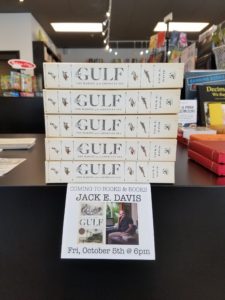 Q: After your book on the Everglades, what made the Gulf a particularly compelling topic to you?
Q: After your book on the Everglades, what made the Gulf a particularly compelling topic to you?
A: I wanted to do another biography of a place and thought of the Gulf since I had grown up on it. A quick check revealed that no one had written a comprehensive history of the Gulf, and given my lifelong relationship with it, the topic seemed a good fit for me. I guess it was.
Q: You frame much of the story of the Gulf through the stories of notable people. Can you say a bit about this use of biography as a narrative device?
A: I wanted nature to be at the forefront of this history because I see nature as a historical agent that shapes the course of human history. This is to say that I did not want human events to dictate the narrative, as is the case with most histories. So I organized the chapters around natural characteristics of the Gulf: estuaries, fish, birds, the beach, intense weather, islands, rivers, etc.
But this is a book about the human relationship with Gulf nature, so I had to bring people into the story. It made sense then to use human characters and their stories to help frame the narrative in each chapter and to keep the reader’s interest. Some of the characters were familiar to me, but many emerged as I was researching and writing, and they turned out to be compelling ones. They, among other things, made writing the book fun and inspirational.
Q: What do you hope readers will take away from The Gulf?
A: I wrote this book for a national audience rather than just a regional one. I want readers to know that Americans, all Americans, have both historical and ecological connections to the Gulf and that the Gulf is more than a mere oil sump or hurricane alley, that it has a rich history beyond media sound bites that is very much a part of the larger American experience. I determined for this book not to be about the 2010 BP oil spill.
Q: What did you do to celebrate winning the Pulitzer Prize?
A: Hah! There is not much of a story behind the celebration. Learning of the prize is more interesting. It came as a complete surprise. I was in my office on campus in a meeting with a graduate student, reading him the riot act about his sloppy writing, when the office phone and cell phone started to ring. Pesky solicitors, I thought, But neither stopped, and my cell phone was also exploding with texts. So I looked at one, from my editor, Bob Weil, saying I had won. I had no clue that the Pulitzer winners were being announced or that Bob had nominated me (the publishers nominate the books and the finalists aren’t announced until the winner is announced).
I muttered, “Holy shit,” and then fell speechless. I had to push the phone across the desk for the student to read it. His eyes bugged out because, I think, he knew his meeting with me was over (his final paper was perfect, by the way).
Two hours later, I rode my bike home, as I always do, my sleek bike rattling from my shaking, adrenaline-spiked body, thinking that of all days this should not be one in which a car hits me. My 13-year-old daughter met me at the door. Her mother had called her with the news, but she played me, asking, “Sooo Dad, how was your day?”
Later, five close friends came over with dinner and champagne, all of us happy and getting happier, and I wondering how this had happened, trying to translate it into my life and to associate my name with the prize.
Q: What are you reading and recommending currently? Fiction, nonfiction, for fun or edification?
A: I prefer nonfiction to fiction but do not avoid the latter by any means. I just finished Jill Lepore’s new book, These Truths, a superb narrative history of the US. Just before that, I read Lauren Groff’s collection of short-stories, Florida. Lauren and I live in the same neighborhood, and I love when she uses it as a setting, as in the first story of the book. I know the exact sidewalks her protagonist is walking, but the true conveyance is Lauren’s lyrical words and phrases. I read the New Yorker assiduously, and on my bed stand is Barry Lopez’s elegiac Crossing Open Ground, 40 years old and still highly relevant. I’m also eager to dig into Ray Arsenault’s new biography of Arthur Ashe. I read for fun and edification, the latter of which includes studying the narrative and sentence constructions and word choices of the authors. For example, when Lauren used “gambol” in one of her New Yorker stories, I decided to find a place for it in The Gulf. I did.
Q: What are you working on next?
A: I’m deep in the writing of a book on the cultural and natural history of the bald eagle, which is employing the working title Bird of Paradox: How the Bald Eagle Saved the Soul of America. Additionally, one of my former PhD students, Leslie Poole, and I are editing a second edition of The Wild Heart of Florida, a collection of personal essays about natural Florida.
~Robin Wood, Associate Manager
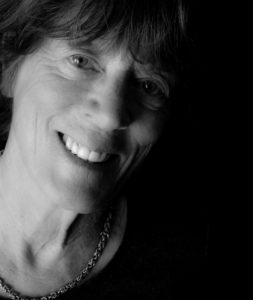 Tuesday, December 18, at 6pm, Rosalind Brackenbury in conversation with Jessica Argyle about The Lost Love Letters of Henri Fournier, Brackenbury’s most recent novel.
Tuesday, December 18, at 6pm, Rosalind Brackenbury in conversation with Jessica Argyle about The Lost Love Letters of Henri Fournier, Brackenbury’s most recent novel.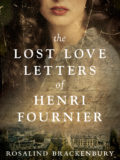 Through Pauline’s love letters, her secrets, and a lost Fournier manuscript, Seb will come to learn so much more – about Pauline, Henri, and himself. For Seb, every moment of Pauline’s past proves to be more inspiring than he could have imagined. She’s given him the courage to grab hold of whatever life offers, to cherish each risk, and to pursue love in his life.
Through Pauline’s love letters, her secrets, and a lost Fournier manuscript, Seb will come to learn so much more – about Pauline, Henri, and himself. For Seb, every moment of Pauline’s past proves to be more inspiring than he could have imagined. She’s given him the courage to grab hold of whatever life offers, to cherish each risk, and to pursue love in his life.
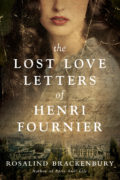


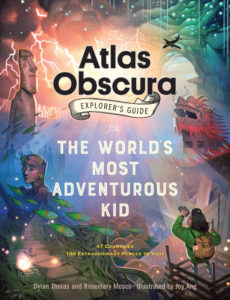 The Atlas Obscura Explorer’s Guide for the World’s Most Adventurous Kid is a passport to the world’s weirdest, coolest, and most mesmerizing and mysterious wonders, presented in a stunning, full-color illustrated journey to 100 real destinations in 47 countries on every continent.
The Atlas Obscura Explorer’s Guide for the World’s Most Adventurous Kid is a passport to the world’s weirdest, coolest, and most mesmerizing and mysterious wonders, presented in a stunning, full-color illustrated journey to 100 real destinations in 47 countries on every continent.

 Q: After your book on the Everglades, what made the Gulf a particularly compelling topic to you?
Q: After your book on the Everglades, what made the Gulf a particularly compelling topic to you?
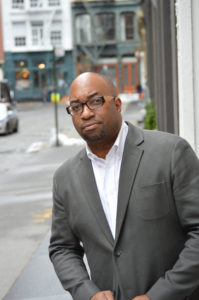 The audacious, Newbery medal-winning Kwame Alexander wants to introduce you to some people – both in his own work and in his new HMH imprint Versify, which showcases voices underrepresented in publishing.
The audacious, Newbery medal-winning Kwame Alexander wants to introduce you to some people – both in his own work and in his new HMH imprint Versify, which showcases voices underrepresented in publishing.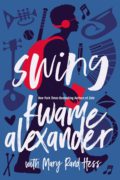

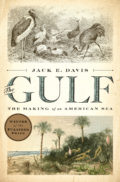
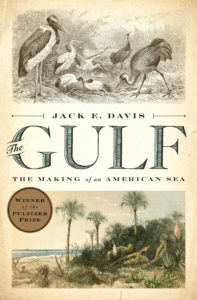 Simon Winchester’s Atlantic” (Dallas Morning News), Jack E. Davis’s The Gulf is “by turns informative, lyrical, inspiring and chilling for anyone who cares about the future of ‘America’s Sea’ ” (Wall Street Journal). Illuminating America’s political and economic relationship with the environment from the age of the conquistadors to the present, Davis demonstrates how the Gulf’s fruitful ecosystems and exceptional beauty empowered a growing nation. Filled with vivid, untold stories from the sportfish that launched Gulfside vacationing to Hollywood’s role in the country’s first offshore oil wells, this “vast and welltold story shows how we made the Gulf . . . [into] a ‘national sacrifice zone’ ” (Bill McKibben). The first and only study of its kind, The Gulf offers “a unique and illuminating history of the American Southern coast and sea as it should be written” (Edward O. Wilson).
Simon Winchester’s Atlantic” (Dallas Morning News), Jack E. Davis’s The Gulf is “by turns informative, lyrical, inspiring and chilling for anyone who cares about the future of ‘America’s Sea’ ” (Wall Street Journal). Illuminating America’s political and economic relationship with the environment from the age of the conquistadors to the present, Davis demonstrates how the Gulf’s fruitful ecosystems and exceptional beauty empowered a growing nation. Filled with vivid, untold stories from the sportfish that launched Gulfside vacationing to Hollywood’s role in the country’s first offshore oil wells, this “vast and welltold story shows how we made the Gulf . . . [into] a ‘national sacrifice zone’ ” (Bill McKibben). The first and only study of its kind, The Gulf offers “a unique and illuminating history of the American Southern coast and sea as it should be written” (Edward O. Wilson).